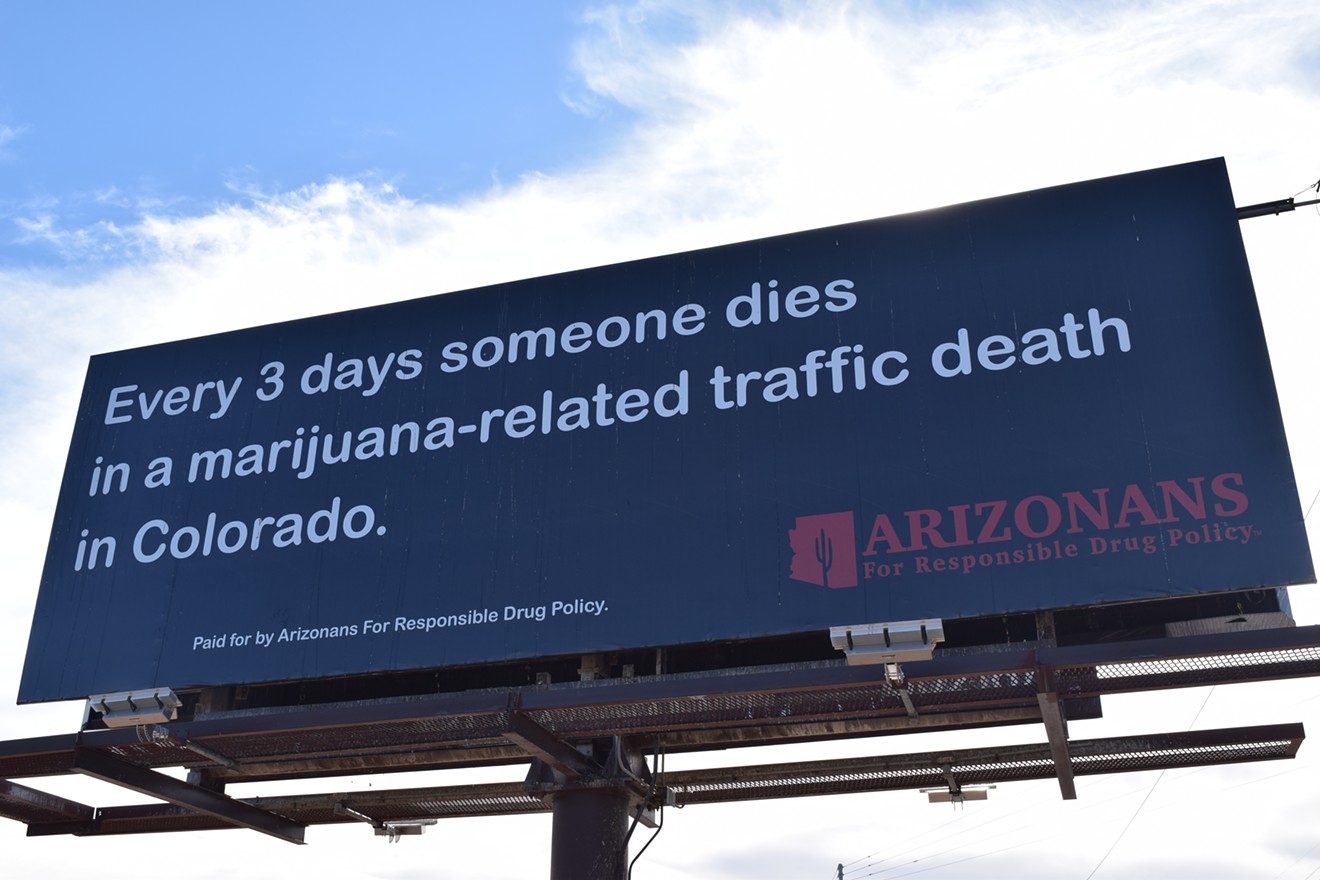The anti-pot group Arizonans for Responsible Drug Policy is rolling out a billboard in Phoenix that cites increased traffic deaths as a result of marijuana legalization in Colorado.
On one of the group's five billboards, just south of Indian School Road on 16th Street, ARDP claims that in Colorado, where voters legalized recreational marijuana in 2012, there is a marijuana-related traffic death every three days.
The source on this claim is an October 2017 report from the Rocky Mountain High Intensity Drug Trafficking Area (HIDTA). It's ARDP's only source for the statistic they cite on the billboard.
From the anti-drug group's statement touting the billboard campaign:
The report records that marijuana-related traffic deaths, when a driver tests positive for marijuana, more than doubled from 55 deaths in 2013 to 125 deaths in 2016 in Colorado. Marijuana-related traffic deaths increased 66 percent in the four-year average (2013-2016) since Colorado legalized recreational marijuana compared to the four-year average (2009-2012) prior to legalization. During the same time period, all traffic deaths increased 16 percent.However, critics have cautioned against relying too heavily on studies like this from HIDTA, a federal task force created by the 1988 Anti-Drug Abuse Act.

An Arizona anti-marijuana nonprofit called billboards like this one from app company Weedmaps false advertising.
Joseph Flaherty
Studies from HIDTA have faced questions before for mangling percent increases and bungling poll numbers. Even Colorado Governor John Hickenlooper criticized HIDTA stats when Attorney General Jeff Sessions referenced them in a recent letter on marijuana. Hickenlooper, along with the Colorado attorney general, pointed out that "data collection gaps rendered pre-2012 data incomplete."
And reports from the task force are also not peer-reviewed, unlike an article published in a scientific journal.
Merilee Fowler, the secretary/treasurer for ARDP, wrote in an email that the HIDTA report "obtained the data from the National Highway Traffic Safety Administration, Fatality Analysis Reporting System and Colorado Department of Transportation."
In late October, the app company Weedmaps came under fire from ARDP. The anti-drug group alleged that Weedmaps was guilty of false advertising for its billboards in the Phoenix area. The Weedmaps billboards show positive statistics about the effects of marijuana legalization.
A 501(c)4 nonprofit organization, ARDP is careful to note in its press release that no funds from the group's successful effort to defeat the 2016 ballot measure that would've legalized recreational marijuana in Arizona went to the new billboard campaign.












